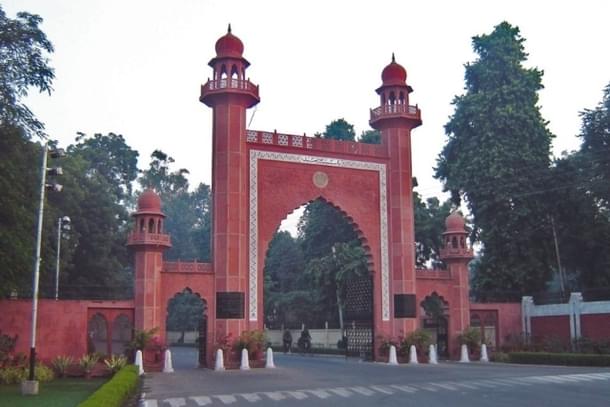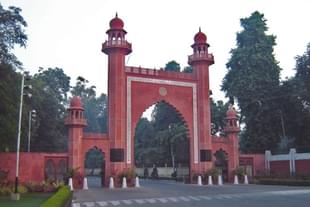News Brief
Aligarh Muslim University Minority Status: Here's The Latest Update On The Case
Nayan Dwivedi
Feb 02, 2024, 11:33 AM | Updated 11:37 AM IST
Save & read from anywhere!
Bookmark stories for easy access on any device or the Swarajya app.


The Supreme Court has reserved its judgment in the case questioning whether Aligarh Muslim University (AMU) is entitled to minority status under Article 30 of the Indian Constitution.
The Constitution Bench, led by Chief Justice of India DY Chandrachud and comprising six other justices, concluded the eighth and final day of hearings on Thursday (1 February).
The core legal issue revolves around the criteria for conferring minority status on an educational institution under Article 30 and whether a centrally-funded university, established by parliamentary statute, can be designated a minority institution.
The case, initiated in 2019, saw a Constitution Bench appointed to address these questions.
Also Read: Kejriwal Skips Fifth Summons By ED In Delhi Liquor Policy Case; AAP Targets PM Modi
Recently, the Centre has firmly stated before the Supreme Court that Aligarh Muslim University (AMU) cannot be classified as a minority institution due to its inherent "national character."
AMU's status as a Central University was held by the Supreme Court in 1968, which concurrently ruled that a minority status under Articles 29 and 30 cannot be granted to a Central University.
However, a subsequent amendment to the AMU Act in 1981 reinstated its minority status, leading to legal challenges.
Several top lawyers appeared before the bench to argue for the rival sides.
Veteran lawyer Kapil Sibal, contended that the mere fact that only 37 of the 180-member governing council is Muslim does not detract from its credentials as a Muslim minority institution.
Sibal underscored AMU's historical commitment to serving the minority community's needs.
Meanwhile, the Chief Justice noted that the 1981 amendment did not fully restore the pre-1951 Act's position, raising questions about Parliament's approach.
"The (1981) amendment brought a Muslim voice into AMU but it stopped short of going back to the pre-1951 Act, or to the 1920 one. That was to say a half-hearted job, even by parliament, because it had the power to do so," the CJI observed.
Nayan Dwivedi is Staff Writer at Swarajya.





